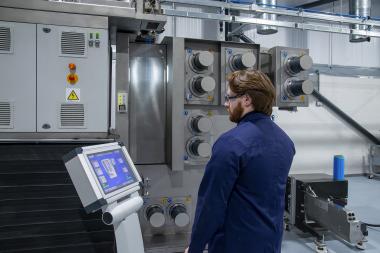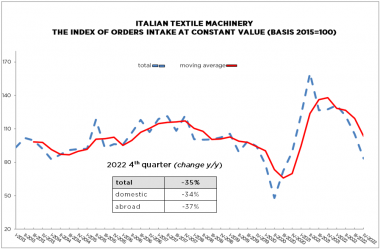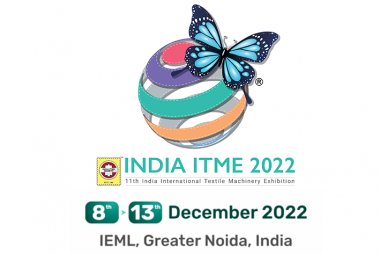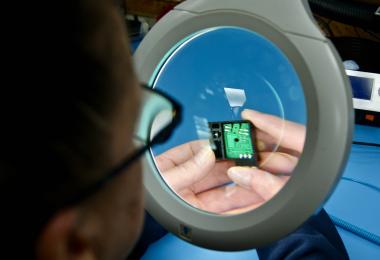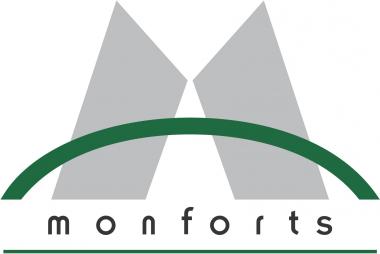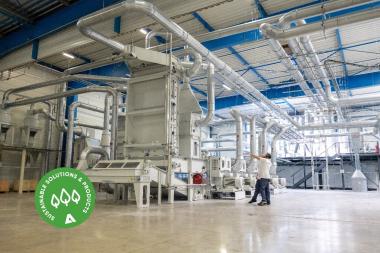VIATT 2024: New textile fair in Vietnam
With combined regional, global, and industry specific expertise, the Vietnam International Trade Fair for Apparel, Textiles and Textile Technologies (VIATT) will make its debut from 28 February – 1 March 2024. Following the signing of a memorandum of understanding (MOU) in late March, Messe Frankfurt (HK) Ltd and the Vietnam Trade Promotion Agency (VIETRADE) announced the new international fair for the entire textile value chain. The three-day platform will be staged at the Saigon Exhibition and Convention Center (SECC), Ho Chi Minh City.
Commenting on the new event, Ms Wendy Wen, Managing Director of Messe Frankfurt (HK) Ltd, said: “With Intertextile Apparel in Shanghai a prime example, our Texpertise Network provides the ideal global framework from which to launch this diverse, comprehensive platform for the integrated textile supply chain. VIATT itself will capture the essence of Texpertise in one platform – a diverse, one-stop sourcing event for buyers across all categories, from garments, fabrics, yarns and fibres, to textile machinery, technical textiles and nonwovens, and everything in between.”
Discussing the event’s potential, Mr Le Hoang Tai, Deputy Director General of the Vietnam Trade Promotion Agency (VIETRADE), said: “Vietnam is one of the world’s leading textile producers and exporters, and going from strength to strength as one of Southeast Asia’s manufacturing hubs. Our establishment has many years of experience organising trade fairs throughout Vietnam, and together with Messe Frankfurt we are excited to help international fairgoers unlock the potential of the country’s fast-growing textile market. In addition, Ho Chi Minh City’s accessibility, and Vietnam’s proximity to other leading textile-producing nations such as Bangladesh, Cambodia, China and India, make it the logical venue to host an event of this nature.”
Many international textile manufacturers have been expanding operations into Vietnam, augmenting an already strong domestic industry. According to the Vietnam Textile and Apparel Association (VITAS), the country’s textile and garment industry achieved staggering annual growth of 20 – 26% from 2018 – 2022. Participation in international trade agreements such as the Regional Comprehensive Economic Partnership (RCEP), the Comprehensive and Progressive Agreement for Trans-Pacific Partnership (CPTPP), the EU–Vietnam Free Trade Agreement (EVFTA), and the Indo-Pacific Economic Framework for Prosperity (IPEF)[2], bodes well for future growth.
As one of the world’s biggest importers of textile machinery, and a consistent importer of fabrics, yarns and fibres, garment production is the cornerstone of Vietnam’s industry. The country utilises cotton and functional materials to produce casualwear, childrenswear, swimwear, workwear, and much more, with sportswear an especially fast-growing category, and high-utility garments expected to achieve high exports.
By linking textile players from across Asia, Europe and beyond with this market, VIATT 2024 is willing to play an important part in shaping the future of Vietnam’s industry. Next year’s fair will host an extensive mix of international and domestic exhibitors covering multiple textile sub-sectors, including garments, apparel fabrics and accessories, yarns and fibres, digital printing, home textiles, technical textiles and nonwovens, textile processing, textile machinery, and more.
Exhibitors and buyers can utilise the fair’s global business matchmaking service, where connections are made based on the specific needs of each party. In addition to the fair’s main function as an international trading platform, its fringe programme will facilitate participants’ networking with industry leaders and offer diverse market insights via various seminars, forums, and panel discussions.
The Vietnam International Trade Fair for Apparel, Textiles and Textile Technologies (VIATT) is organised by Messe Frankfurt (HK) Ltd and the Vietnam Trade Promotion Agency (VIETRADE). Covering the entire textile industry value chain, the inaugural edition will be held from 28 February – 1 March 2024 at the Saigon Exhibition and Convention Center (SECC), Ho Chi Minh City.
Vietnam
Messe Frankfurt (HK) Ltd,















